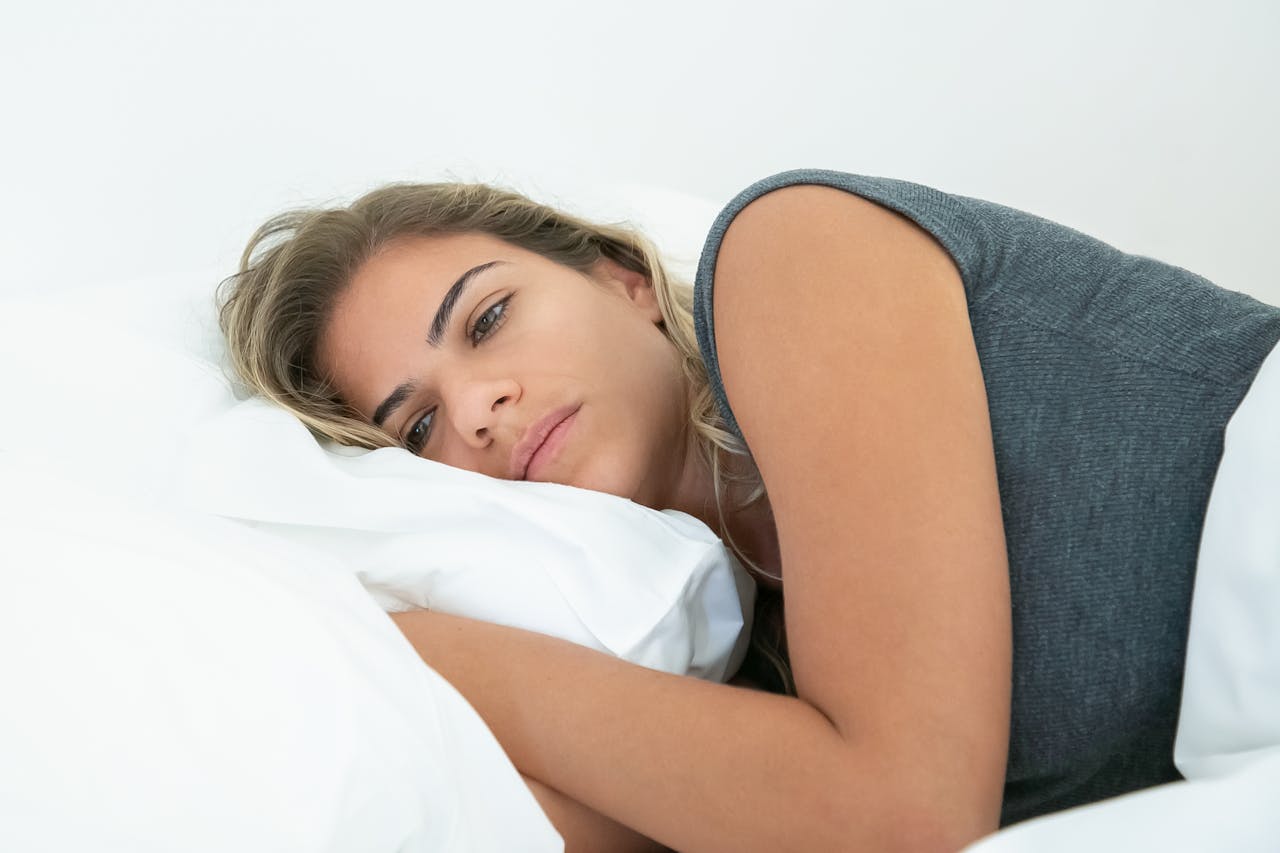Comments
- No comments found

Screen time before bed can have significant negative effects on sleep quality, mood, and overall health.
Exposure to the blue light emitted by electronic devices can disrupt the production of the sleep hormone melatonin, leading to difficulty falling asleep and poor sleep quality. This can result in cognitive impairment, daytime sleepiness, and a loss of concentration during the day. Furthermore, late-night scrolling can contribute to physical health issues such as high blood pressure, heart disease, and obesity, as well as exacerbate symptoms of depression, stress, and anxiety. To break the habit of using screens before bed, it's essential to establish a nighttime routine that includes activities to relax and unwind, utilize digital detox tools to reduce exposure to blue light, re-evaluate the sleep environment to eliminate distractions, and consider natural sleep remedies like essential oils to promote better quality sleep.
According to a YouGov study on sleep, 87% of Britons say they look at their phone or tablet within an hour before going to bed, with 25% claiming they look at their phone immediately before going to sleep. On top of this, 74% of people say they keep their phones in the bedroom at night.
With so many UK residents claiming to frequently use their phones before turning in at night, what is the true cost of using your phone before bed?
Experts have highlighted the consequences that late-night screen time can have on your sleep, mood, and overall health.

While the blue light emitted from electronic devices has often been attributed to things such as sleep disruption, research suggests a broader negative impact, with links to such things as:
The blue light emitted from your device’s screen is part of the light spectrum most active in your sleep cycle. When stimulated, this part of the brain suppresses the production of the sleep hormone melatonin, making it difficult for people to switch off at night.
The resulting sleep deprivation from this stimulation can lead to excessive daytime sleepiness and a loss in concentration that can hinder the ability to perform basic daily tasks, more commonly known as 'brain fog'.
Skimping on sleep due to late-night scrolling can cause a ripple effect that can pose profound long-term health implications. Sleep deprivation has been linked to a myriad of physical health issues, including high blood pressure, heart disease, and obesity.
Poor sleep quality is known to negatively impact hormones that regulate everything from blood sugar to appetite.
While not explicitly focused on late-night scrolling, research conducted over the last few years has suggested a strong link between depression and prolonged periods of screen time, especially in adolescents.
A 2023 study conducted by The Yale School of Medicine reported that more than 5,000 9–10-year-olds' time spent on digital technology directly correlated to the likelihood of developing anxiety and depression within a couple of years.
Whilst there are many consequences strongly associated with late-night screen time, there are also many ways to combat the urge to reach for your phone before bed.

Here are a few top tips to help you unplug and reset:
Switching off your devices a few hours before bed allows your brain to de-stress and prepare for sleep. Replacing screen time with calming bedtime rituals such as taking a bath, reading, or engaging in light exercise can help signal to your body that it's time for bed.
Ironically, you can actually use your devices to help support your sleep routine, by utilizing a wide range of apps and functions. Features such as 'sleep mode' can help reduce blue light and block notifications to help your brain de-stress before sleep.
There is also a wide range of apps available, such as Headspace or Calm, that you can use to establish better nighttime routines by providing features such as guided meditation sessions to help unwind in the evening.
Simple changes to your sleep environment can have a significant impact on the quality of sleep you get. Getting rid of electronic stimuli and light-emitting devices can help eliminate potential distractions and remove the temptation to use your devices late at night.
Optimizing comfort, using blackout blinds, and wearing earplugs to bed are other great ways to improve your sleep routine.
Using natural sleep remedies is a proven way to help support your sleep routine. The calming properties of essential oils such as lavender and chamomile can support better quality sleep and create a peaceful environment conducive to sleep.
Laurence Brown commented on the findings:
"Swapping the blue glow of your laptop or phone for a relaxing bedtime routine is an investment in your overall health. The issues in your sleep that are worsened by late-night screen time can lead to a vicious cycle, ultimately increasing the risk of serious health problems later in life.”
“Creating a sleep-conducive environment and using natural sleep remedies can help break this cycle and positively contribute to your overall health."
Riddhi Doshi trains and coaches corporate leaders, educators and parents on issues of mental health and behavior. She is an internationally certified Parenting & Behaviour Coach. In past 15+ years she has conducted 2540+ open workshops, delivered 87000+ hours of talks, 53000+ hours of counseling sessions covering 59000+ students and 62,000+ women from various fields. Parenting sessions conducted by Riddhi are housefull and recent;y she completed her 366th Parenting session. She has been a speaker and advisor at various institutions and organizations including IIM, Ahmedabad, Rotary Club, Tata Power, Larson & Toubro and The Time of India. She holds an MBA in HRD, LLM and numerous other professional certifications from prestigious international institutions including University of Cambridge, BSY University, London, City & Guilds, London, Tata Institute of Social Sciences and NMIMS, Mumbai. She has been awarded with “National Award for Cultural Activities by AVANTIKA- Delhi”, “Excellence in Wellness”, “Young Entrepreneurs Award”, “Self Made Diva Award” among various others. With a mission to “make corporate leaders, educators and parents empowered and more aware about mental health & wellness”, Riddhi regularly gives interviews on leading media platforms. She loves to interact with corporate leaders, educators and parents to discuss about women issues, child psychology and parenting challenges.
Leave your comments
Post comment as a guest